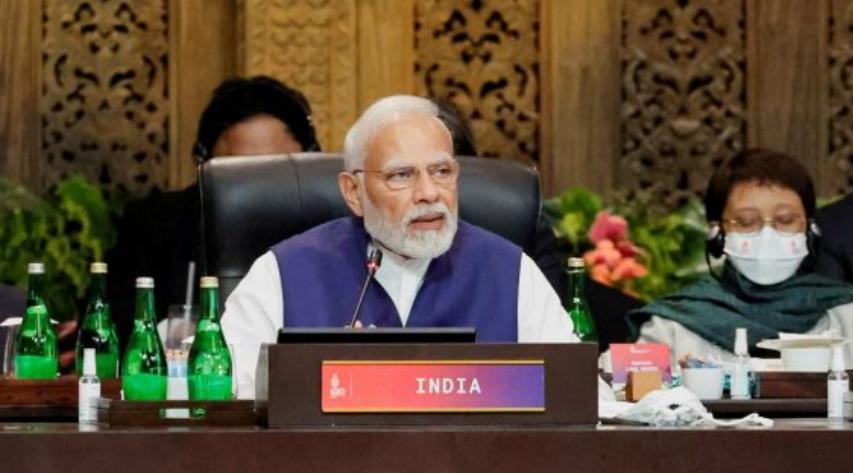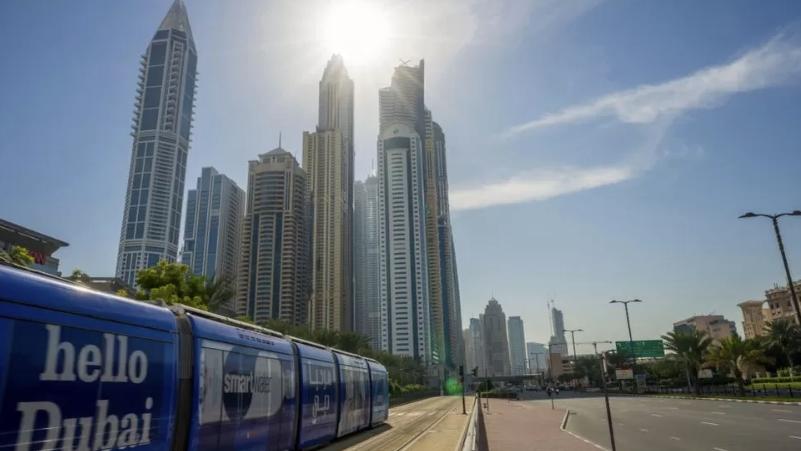If the 20th century was the century of Europe, then the 21st will be the century of Asia. India today is rightfully considered one of the alternative centers of the multipolar world. A rapidly developing economy, a technological base, a huge army with nuclear weapons – all this brings New Delhi to world positions. However, the country wants to become a global leader, renouncing the use of force, choosing for this thousand-year tradition.
Leading the G20
India has become the new chairman of the G20 since December 1. New Delhi has long positioned itself as one of the centers of power in the emerging multipolar world. Moreover, the state is promoting not only the idea of moving away from the unipolar world, but also offers to revise the very Yalta-Potsdam model of the world order that took shape after the Second World War. For a whole year, the government of Narendra Modi will have the opportunity to broadcast its ideas to the 20 largest national economies in the world. To do this, India chooses non-trivial approaches – the state wants to rebuild the world order with the help of the philosophy of Hinduism.
On this occasion, the French newspaper Le Figaro published an article suggesting that Narendra Modi will use his leadership in the G20 to glorify Hindu philosophy and culture. For example, the Prime Minister proposed the concept of Advaita, a current of Hinduism, as “a means of resolving the world’s conflicts and dilemmas of our time.” He also announced that, in addition to the New Delhi summit, more than two hundred conferences will be held across the country so that the G20 delegates “have a complete understanding of India’s incredible diversity, its inclusive traditions, its cultural richness.” The state arrogates to itself leadership positions in spiritual terms.
“Our duty is to acquaint the world with the mindset and strength of India,” Modi said.
Indeed, today’s course of the head of state is “India first.” Its goal is to turn the country into a “dominant power” by the centenary of independence in 2047. The current government advocates a “new India” whose people are “reviving a society plundered for centuries by foreign attacks and colonialism.” Thus, New Delhi plans to take revenge.
Protecting the weak
India’s revenge must begin with a change in its position in international organizations. New Delhi has long advocated a reform of the UN Security Council – expecting to be listed as a permanent member. The country also claims to expand its rights within the framework of the IMF. But most importantly, in all international organizations, India positions itself not just as a representative, but even as a defender of developing countries. Its policy is based on a special relationship with the Global South. Moreover, India positions itself as a bridge between North and South, stands for equal relations between them. Officials of the country in their statements always appeal to the unrepresentativeness of developing countries, emphasizing that only India helps them to be heard.
“The priorities of our G20 presidency will be formed in consultation not only with our G20 partners, but also with our “fellow travelers” from the countries of the Global South, whose voices usually go unheard,” said Narendra Modi.
Spiritual traditions at the forefront
On the occasion of the beginning of India’s G20 presidency, the Prime Minister wrote a special article for Kommersant in Russian. Modi says from the very first lines that New Delhi can “accelerate fundamental changes in thinking in order to benefit all of humanity.” The Indian leader calls for an end to confrontation, the centuries-old struggle for territories and resources. At the forefront, he proposes to put spiritual traditions that will lead to unity throughout the world. In his opinion, a set of such traditions can be adopted from India.
“All living beings and even inanimate objects are composed of the same five basic elements – earth, water, fire, air and space (“Pancha Tattva”, the concept of five elements). Harmony between these elements – within us and between us – is essential for our physical, social and environmental well-being. Through its G20 Presidency, India will work to promote this universal sense of unity. The theme of our presidency will be “One Earth, One Family, One Future,” the Indian prime minister wrote.
According to Modi, all modern threats can be solved if countries unite.
“With the world’s oldest tradition of collective decision-making, India contributes to the foundational DNA of democracy. In a country that is the cradle of democracy, the national consensus is formed not by dictatorship, but by the summation of millions of free votes into one common harmonious melody,” he wrote.
It can be noted that Modi takes the Western agenda, transforming it into an Indian way. First, it comes to the settlement of conflicts and the rejection of wars. Further, the emphasis is on democracy. The topic discussed today, the crisis of democracy, immediately comes to mind. The Indian Prime Minister could not but mention the environmental theme, which is popular today in the West.
“Our priorities will be to heal our One Earth, create harmony within our One Family, and bring hope to our One Future. To heal our planet, we will promote a sustainable and environmentally friendly way of life, based on the Indian tradition of “custodianship” of nature,” he said.
Modi did not ignore the topic of nuclear weapons, which is actively discussed in the context of the conflict in Ukraine, and the broader confrontation between Russia and the West. The Indian example encourages the parties to dialogue for the sake of the future of mankind.
“For the sake of future generations, we will encourage frank conversation among the most powerful countries in order to reduce the risks posed by weapons of mass destruction and strengthen global security,” the Indian prime minister concluded.
From words to deeds
India’s G20 presidency has fallen on a period of global uncertainty, an acute phase of the crisis in the world order and an indirect conflict between Russia and the West. These conditions force the state to act more resolutely in order to really strengthen its position in the world. The starting positions of India are also noteworthy. New Delhi has almost fully managed to implement the principle of political autonomy, to develop strategic relations with both Moscow and Washington. Today, the state is rapidly strengthening its global position. Indian influence is spoken about everywhere – in Southeast and Central Asia, in the Middle East, in African countries. However, this year India, like most states of the world, was forced to restructure its foreign policy.
Head of the Group of South Asia and the Indian Ocean Region of the Center for Asia-Pacific Studies of the IMEMO. EAT. Primakov Institute of the Russian Academy of Sciences Alexei Kupriyanov notes that for Delhi, the current situation presents both challenges and opportunities.
“Until February 2022, Delhi saw its future as a fairly calm track of international relations, which was supposed to gradually bring its economy to the third place in the world. Now, India is faced with many opportunities at the same time, such as, for example, buying cheap Russian oil, and a large number of threats, because for this reason the markets for food and industrial goods are in a fever. In addition, the country is having a hard time as it is under serious pressure from Western powers who are trying to convince Delhi that the world’s largest democracy needs to stop maintaining even relations with Russia and decide on a position on the Ukrainian conflict and support Kyiv, ”he said.
It will be a challenge for India to play the role of a mediator in the Ukrainian conflict, while remaining adamant to Western pressure. At the last G20 summit in Bali, it was the position of New Delhi that was decisive in reaching consensus on the wording in the final declaration, which concerned the Russian special military operation (SVO) in Ukraine. Without Indian efforts, the G20 summit could for the first time end without a final document.
It is unlikely that the G20 will be able to completely resolve the conflict in Ukraine. However, this very organization can act as a platform for productive negotiations between Russia and the collective West together with Ukraine. It is the developing countries of the G20 that can push the parties to conclude an agreement. According to Harsh Pant, vice president of the Observer Research Foundation, India can rally some of the G20 countries to insist on a truce.
“Of course India will do this because it also played an important role at the Bali summit in promoting the idea that the conflict must end,” he said.
According to Pankaj Jha, professor at O.P. Jindala, the role of an effective peacemaker can help India become a global power
“If India can help bring about some kind of ceasefire between Russia and Ukraine or some kind of reduction in tensions on a global level, whether it’s the issue of Taiwan and China or other issues, I think, then it can prove itself as a world leader,” he said. he.
In any case, the new year in the G20 will be marked by Indian traditions. But whether the members of the organization will be able to feel the Hindu philosophy is a big question.



